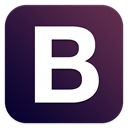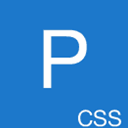The Best Semantic UI Alternatives for Modern Web Development
Semantic UI has long been a popular choice for designers and developers seeking to create intuitive and aesthetically pleasing user interfaces. By creating a shared vocabulary for UI, Semantic UI empowers teams to build cohesive web experiences. However, the rapidly evolving landscape of web development means that many are now seeking robust Semantic UI alternatives that better align with their current project needs, preferred technologies, or performance requirements. If you're looking for more info about Semantic UI like screenshots, reviews and comments you should visit our info page about it.
Top Semantic UI Alternatives
Whether you're prioritizing lightweight frameworks, specific design systems, or a different component library, this comprehensive list of 25+ apps similar to Semantic UI will help you discover the perfect fit. Filter by license to discover only free or Open Source alternatives.

Bootstrap
Bootstrap is an open-source collection of tools for creating browser sites and applications, making it a powerful Semantic UI alternative. It provides HTML and CSS-based design templates for typography, forms, buttons, and more, alongside optional JavaScript extensions. As a free, open-source, and self-hosted solution, Bootstrap boasts features like responsive design, active development, clean design, extensive documentation, and premade templates, making it a highly versatile choice.

Bulma
Bulma is a modern CSS framework based on Flexbox, offering a lightweight and efficient Semantic UI alternative. It is free and open-source, deployable on the web or self-hosted, and includes features such as responsive design, HTML5 support, and mobile-friendliness, making it ideal for web development projects focused on flexibility and speed.

Foundation
Foundation is an easy-to-use, powerful, and flexible open-source framework for building rapid prototypes and production code on any device, positioning it as a strong Semantic UI alternative. Available for free on the web, its primary feature is its robust CSS framework capabilities.

UIkit
UIkit is a lightweight and modular front-end framework designed for developing fast and powerful web interfaces, serving as a comprehensive Semantic UI alternative. This free, open-source, web-based UI framework offers full HTML/CSS and JavaScript components, including forms, themes, and responsive design, providing more extensive features than some other frameworks.

Materialize
Materialize is a modern, responsive CSS framework based on Material Design by Google. As a free, open-source, and web-based solution, it stands out as an excellent Semantic UI alternative for those who prefer Google's design language, offering robust material design, CSS framework, mobile framework, and responsive design features for web development.

Purecss
Purecss is a set of small, responsive CSS modules that can be integrated into any web project. This free, open-source, and web-based framework provides a minimalist Semantic UI alternative for developers looking for highly performant and modular design components.

Skeleton
Skeleton is a small collection of CSS & JS files designed for rapid development of beautiful, responsive sites. As a free, open-source, and web-based CSS framework, it's a fantastic Semantic UI alternative for quickly building projects with a familiar 960 grid that scales elegantly to all screen sizes, from desktops to mobile devices.

RiotJS
RiotJS allows users to build user interfaces with custom tags using a simple and enjoyable syntax. As a free and open-source web library, RiotJS provides a tiny yet powerful Semantic UI alternative, utilizing a virtual DOM similar to React but optimized for speed, addressing the need for a different kind of UI library.

Element UI
Element UI is a Vue 2.0 based component library designed for developers, designers, and product managers. This free and open-source Semantic UI alternative is available for web and self-hosted environments, leveraging CSS, JavaScript, and Vue.js to provide a robust CSS framework for modern web applications.

Spectre.css
Spectre.css is a lightweight, responsive, and modern CSS framework built for faster and extensible development. As a free, open-source, web-based, and self-hosted Semantic UI alternative, it provides an efficient CSS framework for streamlined web development projects focusing on performance and responsiveness.
Ultimately, the best Semantic UI alternative depends on your specific project requirements, team's expertise, and desired feature set. Explore these options thoroughly to find the perfect framework or library that empowers your development process and helps you build exceptional user experiences.